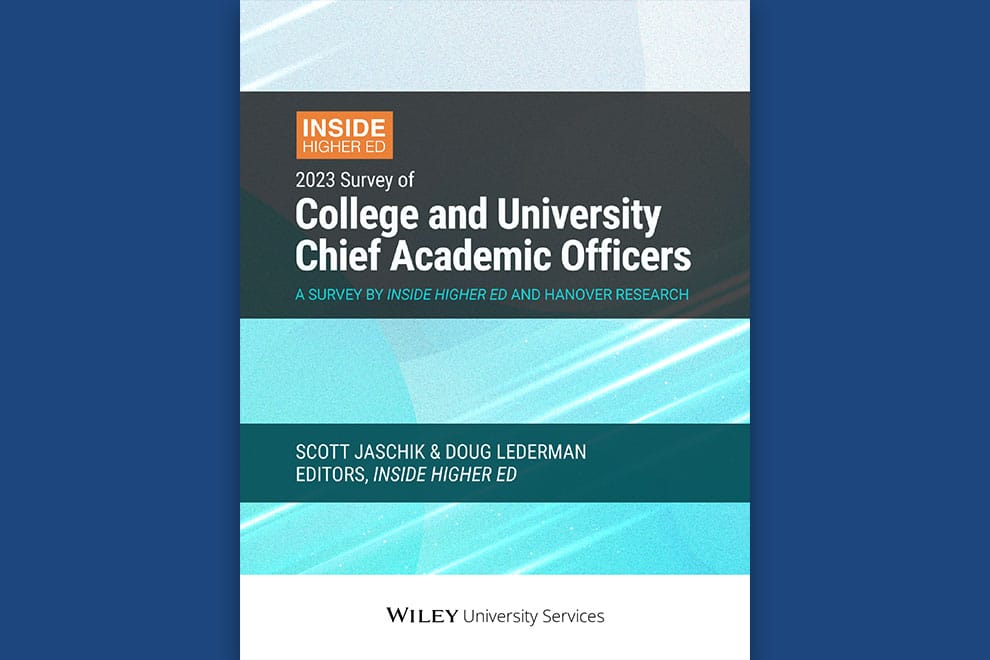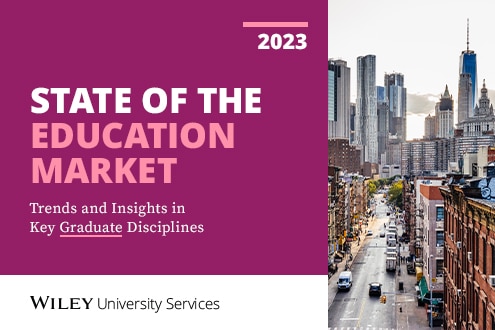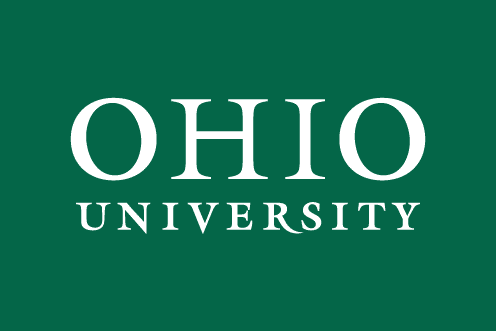Speaker 1:
You’re listening to An Educated Guest, a podcast that brings together great minds in higher ed to delve deeper into the innovations and trends guiding the future of education and careers. Hosted by the Executive Vice President and GM of Wiley University Services and Talent Development, Todd Zipper.
Todd Zipper:
Hello. I am Todd Zipper, host of An Educated Guest. On today’s show, I speak with Richard Vedder, Distinguished Professor of Economics Emeritus at Ohio University. Richard focuses on the economics of higher education and has served on the Spellings Commission on the Future of Higher Education, ran the Center for College Affordability and Productivity, and administered Forbes’ colleges rankings for many years. The key takeaways from our discussion today. First, the reasons college enrollments have declined in the past decade, including underemployment and cost. Second, the rise of student loans since the 1970s and how that has led to massive tuition increases and ballooning student debt. Third, how and why prestigious universities continue to grow. Fourth, the free college movement and how and when this will evolve. And lastly, his proposed college exit exam that could shine a light on what exactly graduates are learning. Hi Richard, thank you so much for being here today on An Educated Guest.
Richard Vedder:
I’m delighted to be with you, Todd.
Todd Zipper:
I’m excited to dive in and talk about some very important topics that have been at the forefront of higher ed for some time now. Before we jump in, can you tell me how you became an economic historian focused on the economics of higher education?
Richard Vedder:
Well, you’re really asking two sort of related questions because I became an economic historian at one point in my life, and then 30 some years later, I added, if you like, the interest in the broader subject of higher ed. People aren’t probably terribly interested in why I became an economic historian, but for 35 years, I was a fairly serious student of economic history and I became moderately well known in the field and spoke at a lot of different campuses. We’re on the faculty of a number of other more prestigious schools that I’m at now. But at somewhere in about the year 2000 or thereabouts, 1999 actually, egged on by a combination of a Wall Street Journal request and a Forbes Magazine request. I wrote a piece on how peculiar higher education was. Most people think of an hour means 60 minutes, but in higher ed, that usually means 50 minutes. A year for most people is 12 months, but in higher ed, that’s usually about eight or nine months.
Richard Vedder:
Most people work in jobs where they have a boss. If the boss doesn’t like them, they can fire them. If the employees don’t like it, tough. But in higher ed, sometimes it’s the reverse. I know cases where the employees have fired the boss. It happened of all places, Harvard University in 2004. The president of Harvard University, former secretary of their treasury, world-renowned economist got fired, and more or less by the faculty. I started saying, gosh, higher ed is kind of a crazy field. I said, here, I’ve been in it for all these years. Why in the heck aren’t I writing about it and talking about it? I wrote a little piece in the Wall Street Journal about that, and that led, and another, did something a little for Forbes Magazine. That led to an invitation to speak to the board of visitors as they call would be like the governing boards of all the universities of the state of Virginia, at UVA, University of Virginia.
Richard Vedder:
And that led, oh, and they loved my talk there. I just kind of expanded on what I had written. But then someone says, well, we want a longer version of this talk. So I gave the Hechinger Institute, which is affiliated with Columbia University, journalism-based institute, asked me to give a big talk out in San Francisco. So I had to write longer and longer talks. Then someone said, what the heck? You’re doing all this stuff. Why don’t the heck don’t you just write a book about it? Being a typical academic, I hustled around till I found a think tank that was willing to finance this and keep me in the style to which I had become accustomed. I was already at retirement age almost, but here I am. So I wrote a book called Going Broke By Degree: Why College Costs Too Much? It caught on pretty good. I got a little bit of audience. That led, one thing leads to another until someone’s saying, why don’t you start a think tank about all this stuff? So I agreed to do it.
Richard Vedder:
I started a think tank in Washington, D.C. and that led in turn to the White House. So this is escalating to the highest level. I never got the Pope, never got involved into this, but I did get the U.S. government involved. I was asked by the White House to some meeting to talk about higher ed, which I went. That I ended up on something called the Spellings Commission, which was actually a major force in higher ed in around 2005, 2006, ’07. We were investigating the future of higher ed. I was one of the 20 members of that commission. And so all of this led to more and more stuff on higher ed. Later on, running this think tank, I started to work on another book on higher ed, sort of a sequel to my first book which came out a couple years ago called Restoring the Promise. I got bored with running think tanks and raising money so I got out of that. My wife says it’s time for you to retire, but no, that’s what happened. And so I ended up becoming, I guess you would say a scholar interested in the economics of higher education. That’s too long of an answer.
Todd Zipper:
No, that was wonderful. Thank you for all the color. There’s a few areas I want to jump into, but let’s talk about a topic that it seems like it was fresh in 1999 when you started in your new era of your career and I was a freshman in college.
Richard Vedder:
Where were you a freshman, Todd? I got to ask.
Todd Zipper:
At the University of Pennsylvania.
Richard Vedder:
Oh yeah, Penn. I have a lot of dealings with them too, but that’s for another day, anyway.
Todd Zipper:
So confidence in higher ed has been declining, especially the last decade along with total enrollments. I’m just going to read the stat here, a 2019 gala poll showed that 51% of U.S. adults believe a college education is very important, seemingly high, but that is actually down from 70% in 2013. But yet on the flip side of this, we know that so many employers require a college degree. And also the skills gap issue that we keep hearing about in the market continues to widen and really demands postsecondary education to meet, some kind of postsecondary education to meet that demand. There’s a lot of noise. Maybe you can help us parse out the signals here. What is your real take on the confidence that continues to wane in higher ed? Or is that just really a myth?
Richard Vedder:
No, I don’t think it’s a myth. By the way, as a sideline, once upon a time, worked for the U.S. Congress so I am not naive when it comes to the political process and public policy decision making. I think I’ve spoken in over 30 state capitals and at least 20 times testified before the Congress itself. So I have a pretty, I don’t want to say I’m an expert on it, but I understand the political process pretty well. I think higher ed, when I started teaching back in the ’60s, was sexy, was popular. It was growing rapidly. A governor in every state, the way to get votes was say, if you vote for me, I’ll put a new state university in your city or something like that, or we will expand your university or open a new branch campus. It was all about expansion, growth, and that was big for a long time.
Richard Vedder:
So in 1970, for example, there were twice as many, twice the proportion of Americans in college than there was just 10 years earlier. Now, if you go back the last 10 years, say 2010 to 2020, or even 2009 to ’19, if you want to avoid the pandemic, that’s no longer the case. Actually the percentage of Americans that are actually attending school has declined somewhat and enrollments have gone down fairly consistently every year since 2011. That doesn’t mean enrollments at every school have gone down. One thing about American higher ed is it covers a lot of territory. There are a lot of different kinds of schools. There are community colleges, many, many different types of schools. So I can’t say for sure, but it’s my understanding that higher ed lost some popularity. Part of it, of course, there’s demographic factors at work. Americans, for some reason, decided to have fewer babies a number of years ago. I’ll let others analyze why that’s the case.
Richard Vedder:
And so we now have birth rates in America that are below the level that would sustain the population as current level without any, if there were no immigration going on. In many states, particularly in the Eastern part of the U.S., the population is literally falling now. And in the entire United States because of the pandemic, we barely had an increase last year. That means 15, 20 years from now, we’re going to not have a big growing pool of students. If anything, the pool is getting smaller and has been for some time. So that’s one factor. But another thing is more and more Americans were reading statistics, which were true that there’s risks associated with going to college that have been downplayed by the academic establishment. One risk. If you go to college, will you graduate? Pretty simple, basic question. Well, the statistics show that maybe 40% of the people who enter a four-year college as a full-time student, 40% don’t graduate, not in four years, not in five years, not even in six years.
Richard Vedder:
You’ve got a fairly decent chance that you’re not going to graduate. That’s one of the risks. Then people started hearing about student debt. I suppose we’ll talk about that in a minute. That people were borrowing a lot of money to go to college because the costs were rising. We can come back to that in a minute too. The costs were rising. Were the benefits rising? That is when you graduated. Let’s say you did graduate from college. Would you get a good job? Well, for a long, long time in the late 20th century, the 1970s, 1980s, 1990s, the advantages of college were growing. They were getting bigger and bigger and bigger and bigger and bigger and bigger, but they stopped growing somewhere along the lines. In the last 20 years, the earnings differential associated with a college degree has not grown. It is in fact, it’s stagnated. Some statistics even suggest it’s narrowed a little, it’s declined. That is a high school graduate earnings relative to a college graduates earnings, that gap is no longer widening.
Richard Vedder:
In some cases, it’s actually narrowed a bit. That’s a reality. I don’t know exactly why that’s the case, but I think it’s probably that we’ve been turning out too many college graduates for the skilled jobs that we have. We do have skilled jobs that need filling. They’re growing larger and more fast than the jobs like being a grocery bagger, bagger in a grocery store, working as a clerk and so forth. But they’re not growing as exponentially fast as the college presidents would let you believe. And so we are having more and more college graduates who are what the federal reserve bank in New York calls underemployed. That means they graduate. They get jobs. It isn’t that they’re unemployed. They get jobs, but they’re taking jobs that used to be or are often filled by high school graduates. They’re working as baristas at a Starbucks or they’re working in a Home Depot store.
Richard Vedder:
Sometimes they’re a healthcare aid of some sort and they’re employed, they’re earning an income, but why go to college for that? You don’t need a college education to do that. In the meantime, we’re hearing anecdotal stuff, which is true about other people, other kinds of jobs like being a welder, for example, or being a long distance truck driver. We’re hearing enormous shortages of long distance truck drivers. People getting a 10,000, $20,000 signing bonus to agree to be a truck driver. I even have a relative who just started being a truck driver. A kid with just a high school education got a pretty good job, making pretty good money. There were alternatives to college.
Todd Zipper:
There was some good stuff there. We’re going to pick this apart a little bit. Let’s talk about affordability. I know you’ve written a lot about this. How did we get on this inflation gravy train or whatever you want to call it, where colleges just, I know it’s distortion, you have thick sticker price. You have the discount rate, which maybe you can explain that too. But generally speaking, the cost of education that the taxpayer, that the student, that the parent, that everybody that’s paying for this, generally this has gone up larger than the value that it’s created, which I think you were talking a little bit about that. The cost and the value equation. Why has this gotten so out of control?
Richard Vedder:
Well, superb question. As I say, it kept me gainfully employed answering that question for about 10 years. In a way, it’s a problem in a way that from my point of view it was good that it developed because it put bread on the table for quite a few years. The answer can’t be explained in a sentence or two, but it is true that colleges are what we might call service occupations. For the most part, the employees. That is to say they don’t produce a good or they don’t make widgets or automobiles or something tangible. They produce a service that provides value over time. The service industries inherently are hard to become more productive over time because they require a lot of labor. I mean, this is historically, so an answer to your question if you had asked this question in 1980 or so when you were probably about minus five years old. If you had asked this question in 1980, I would’ve said, well, looking back historically back all the way to 1840, which is far back as I had data, tuition fees for example at universities have gone up about 1% a year, more than the overall inflation rate. The price of college was going up a little bit more than the price of wheat or the price of automobiles or the price of anything else you want.
Richard Vedder:
But that was no big deal because we were a wealthy nation, growing nation. Our incomes were going up 2% a year so our incomes were going up a little bit faster than college costs. So in reality, college was becoming a little bit more affordable every decade than the previous decade, still a big expense, but something most families could endure and so forth. That’s where we were 40 years ago say, but then the federal government, I mean, this is my version of the story. And a lot of people agree with me on this, by the way, I’m not unique in taking this point of view. One thing happened in the ’60s. We had the Great Society and we started a whole bunch of new programs designed to help lower income kids get more access to college education. The most important of these was the federal student loan program and also grant program like the Pell Grants, also other stuff, Federal Work-Study programs and so on.
Richard Vedder:
They started in the mid ’60s on a fairly modest scale. But by the late ’70s, they grew astronomically. Instead of making them available just for very low income people, we more or less opened it up to, if not, the entire population, most of it. So after 1980, the number of people getting federal grants or especially getting student loans just started growing very, very rapidly. You would say, ah, that’ll make college more affordable. But what that line of thinking ignores is the fact that the colleges are looking at this and they say, aha, now kids, you can pay more because you can borrow more. You might not have had the money before so we could only raise our fees a little bit each year, because that’s all you could afford. But now we’re going to raise our fees 5% or 10% a year because what the heck, you can go out and borrow the money. That’s what happened.
Richard Vedder:
There was an enormous increase in federal borrowing in the ’80s, the ’90s, the 2000s, in the 2010s. Now this has changed in the last few years. Up to about 2010, for about 30 years, that just soared. Instead of having a few billion dollars in federal student debt, and that’s what we started to have, close to 200 billion in at any one moment in time. And the accumulative total of debt that was owed back to the government rose to trillion, trillion and a half, one and three quarters trillion today roughly. That’s real money. That’s real money. And so people were borrowing more and more and more and schools were raising their fees more and more. They said, oh, this will go on forever. Well, it couldn’t go on forever because the fees got so high that people who were borrowing were finding, hey, we can’t pay back this money after we graduate, just so much.
Richard Vedder:
And the debt load was getting so high and so many people were borrowing money and majoring in topics in college. And I don’t want to pick on any one subject. There are a whole bunch of them I could pick on, but college used to be a piece of paper. It was a credential. If you had this piece of paper, it said, ah, this person’s pretty smart because he graduated or she graduated from college. This person is pretty highly disciplined. You can’t get through college without being bright and without using your time appropriately and so on. That became a little less true as time went on. We had great inflation so there were kids graduating from college who weren’t quite as smart as the old generation used to be. Surveys show that government surveys, federal government, U.S. Department of Labor, that back when I was going to college, 40 hours a week was about what a kid put in on their studies either going to class or studying.
Richard Vedder:
They worked as much as their parents did. And today it’s more like 25, 27 hours a week. Why even be in a terribly big hurry to get through college? It’s fun. It’s fun. The government will lend us money. They don’t care about our degrees, what our grades are. They don’t pay any attention. Unlike incidentally old private scholarships were very much, you got to have a three point average or something to keep the scholarship. Now, as long as you can stay in school and you can breathe and if they hold up a mirror in front of you, if it fogs up, that means you’re eligible to be a student, doubly so, if you can write a check. Standards deteriorated a bit in some people’s mind. I’ve been teaching that whole period by the way. I’ve been around teaching. I started teaching. Yeah, I taught in Plato’s academy before the birth of Christ. Not really, but I’ve been teaching since the ’60s regularly for 50 some years consecutively until just this last year, the pandemic kind of threw me off. I’ve been teaching this whole time. I can say that standards kind of deteriorated a bit.
Richard Vedder:
Employers became a little more dubious about hiring workers. Alternatives to college degrees started looking better. Companies like Google and Amazon and Microsoft started saying, do we really need a college degree? Maybe we’re going to start hiring people without college degrees. A novel idea, quite the opposite of the trend over the last half century.
Todd Zipper:
Let’s jump into that in a second, but I want to just go back to the federal student loan program and make sure we really covered that. Because this is a big issue that you’re pointing out, trying to get to the source of why we have 1.75 trillion dollars of debt. I would love for you to comment on the fact that for almost two years now, no one has been, I think, accruing interest on their debt or paying back their debt. You could correct me if I’m wrong there. But the issue, this reminds me of an economics lesson I once had many moons ago. By the way, I can’t even get my age right so I’m getting old myself. I wasn’t a freshman in ’99. I was a freshman in ’94. I just realized that when you mentioned my age is minus four.
Todd Zipper:
But nevertheless there was this lesson around the cobra problem that India was having back when the British I think was overseeing India. I forgot, it was Delhi or where it was. They had cobras, it was an issue. So of course the government incentivized, they would pay $100 or whatever it was for every cobra head that was out there that you could bring in. Meaning you kill the cobra, you come in, you get some money. Of course what happened was it screwed up all the incentives, right? And then all of a sudden they created cobra farms.
Richard Vedder:
I don’t know. The first thing about this, I was like, cobra farms, obviously there’s no way to make a rupee.
Todd Zipper:
Exactly. Is that what happened with college is that all of a sudden everybody could pay for college? Why not increase access when you’re not really being held accountable around the outcomes, right? That’s what this ultimately comes down to. Who is getting punished if people default on their loans? Which is one extreme, the other extreme, like you said, which is really hard to track is the underemployment. You got a great degree from a university that’s prestigious, but you’re not making a great wage because you’re probably underutilizing your skillset. So I’d love you to confirm that, that we really have an incentive problem issue right now.
Richard Vedder:
Oh, it’s a huge one. I might say, and this is relating, actually it relates a little bit to your personal education. You went to a yuppie, elite, private Ivy League school. I went to a similar type school, by the way, I’m all for these type schools. They offer a very good, although expensive education. The gap between the pens of the world. I’ll use the state of Pennsylvania since that’s where the University of Pennsylvania is and say Indiana University of Pennsylvania, which is a school in the Western part of the state of Pennsylvania. The gap between those two types of institution has dramatically widened over time. The kids that go to the University of Pennsylvania and the same thing would be true at any other Ivy League or Duke or Northwestern or Stanford or all variety of other elite private universities. These schools have a reputation for excellence, high standards. They get high ratings.
Richard Vedder:
By the way, I used to do college rankings for Forbes Magazine so I’ve been in that business too. These schools, there’s a flight to quality in higher ed today, very much so. Applications at Penn have not declined in the last 10 years, or at Harvard, or at my alma mater Northwestern, or at Chicago, or at Duke. They have more applicants than ever before. People are clamoring to go to those schools, even with a fall in the pool of births. They’re still clamoring to go to the Harvards of the world, but they’re not clamoring to go to the Indiana Universities of Pennsylvania in the world. And I have nothing against the Indiana University of Pennsylvania. I’m sure a perfectly nice school. I even ate lunch with its president recently. It’s not a school with a lot of national reputation. College graduates are a dime a dozen these days almost, it sort of felt like. A prestigious degree will get you a lot of job opportunities, graduate school opportunities, et cetera.
Richard Vedder:
But a degree from a less, a regional state university of less distinction or a small private liberal arts college that no one’s ever heard of except in the state that the school is located in, or especially community colleges, which are now viewed as inferior version of college by many rightfully or wrongly, by the way. I’m not saying that’s necessarily true, but that’s the way. In the pandemic, I mean, in the years up to the pandemic, the big decline in enrollments were in community colleges. They were in these obscure state universities and they were in the less prestigious private schools. But the prestigious schools did better than ever. I mean, Harvard has more applications than ever and so on. My alma mater is bragging every year of how many more applications they had than the year before. But that’s not true at the, I keep picking on poor Indiana University of Pennsylvania, but in that type of schools. So we have a big change going on within higher ed.
Richard Vedder:
It used to be, if you graduated from college, you were special. When I graduated from college, about five, 7% of the adult population had degrees. So you were one of a special, if you had a dozen group, a dozen people, probably one of them would be a college grad. Nowadays, if you have a dozen people thrown together in a room, at least four of them will be a college grad, maybe five. So a college degree isn’t anything special these days. And so to have a special degree, you have to go to a special kind of school. So now it’s not just having the degree, you got to have the “right kind of degree.” Going to Penn or the Ivys or other distinguished private school, or even distinguished state universities, University of Virginia, University of North Carolina, University of California at Berkeley, the University of Michigan, these are very prestigious public schools.
Richard Vedder:
If you have a degree from those, you’ll get a job and probably a pretty decent job even today, but that has changed a lot. We’re sending more and more people to college, the demand for college skills, skills that required college degrees hasn’t grown quite as fast as the number of students getting those degrees.
Todd Zipper:
I want to jump into, I think I know where this is going already, but a big part of the 2020 presidential campaign or election was around free college, right? There’s been a movement over the last decade or so. It wasn’t even a democratic thing. I think there were some Republican governors that did free community college and then it sort of took on like wildfire, not just associate degrees should be free, but all college should be free like some of the European systems. I can see where this conversation is going a little bit, but can you kind of help us understand this movement for free college? It is not we’re a year into Biden’s roughly administration here and we’re nowhere closer to getting a free college degree. What are your thoughts on this movement?
Richard Vedder:
I’m not a politician. I mentioned to you, I’ve dabbled in the political sphere so I’m not a novice at it. I think the immediate prospects, meaning the next year or two years at the national level for free college is pretty dim. Right now as everyone knows, there’s precariously evenly divided Congress. To get anything past that is kind of radical or a big change is difficult as President Biden found out with his Build Back Better program was able to get a bit of an infrastructure plan that was more or less universally agreed on by most of the politicians in both parties, but couldn’t get this other thing. Free college is in the same category. Many Republicans sort of take the view that college is an expense. It requires resources. Wealthy or middle income families have the resources to pay for it. Their children are the beneficiaries of the college, they should pay for it. That’s one point of view.
Richard Vedder:
The other point of view, the free college point of view is, hey, we provide free elementary school, free middle school, free high school. Why stop at age 17 or 18? Why not keep going to 22 or 25 or maybe theoretically 65? Be able to go through school as long as you want, it’s benefiting society. These are two different perspectives. As you know, there’s the prospects of major change in the next year is limited by the Senate being divided 50/50, and a very slim margin in the house. There is one thing on that. This is a political point but it’s also a demographic point. You know, we have about 10 set members of the U.S. Senator 80 years old or older right now. They’re about evenly divided between Democrats and Republicans. Dianne Feinsteins of the world, and the [layhis 00:31:42] of the world are in their late 80s. But so are the Chuck Grassleys, he’s a Republican in their late 80s. It would be entirely possible in the next six months or a year that a senator’s tenure would come to an end, maybe by death or resignation.
Richard Vedder:
And there would be a new appointment. And that 50/50 ballots might change to 51/49. It could go either way. It could go in the Republican direction, Democrat direction. I’m not sure that everything is set in stone in the next year, but I think anything is going to wait a year or two. And you know, if you believe what all the experts and so forth say, the game seem to be running in the Republican direction for the next Congress, as far as the house of representatives concerned. We might have a divided Congress. My guess is the chances of a free college across the board in the immediate future is pretty slim. I wouldn’t say zero, but pretty slim. That’s just by reading of the political situation. And another point related to that is there is a lot of evidence and this especially true with respect to the student loan program. We’re looking about, you were asking, what about forgiving student loans and all?
Richard Vedder:
Who are the people who owe all the money on student loans? Are these poor downtrodden, recent college graduates making 25,000 a year? A lot of the evidence is that a majority of that debt is held by pretty, pretty well-off people. Many of them are graduates of medical schools or lawyers or MBA programs and go to Wharton MBA program. Those poor people making mere $150,000 a year out of college. I feel their pain. They have a debt to pay. Actually, there’s some studies that have suggested that if we forgave the student debt, which is the other part of your question, which you’ve already alluded to them or sort of been doing it for the last year or two, if we just said, the heck with it, you don’t have to pay back those debt. The big gainers are not going to be poverty-stricken, poor people. On balance, it’ll be an income redistribution towards the rich because there’s an awful lot of MDs and MBAs and grad students out there and also rich undergraduates out there, rich undergrad, prosperous undergraduate students out there who got the loan. That’s what the stats say.
Richard Vedder:
It’s an interesting question. I think there’s a good case to be made for providing aid to low income students who are having trouble paying for college. A good case can be made for that. But a blanket free college for all is kind of expensive thing in a nation where we’re running, what, trillion and a half dollar debt, more than that. We’re running bigger deficits than that every year. Multi-trillion dollar deficits every year. I think the mood for this has peaked. I may be wrong. I mean, Bernie Sanders was getting a lot of play with this issue. Elizabeth Warren was getting a lot of play with this issue. But I think it’s cooled a little bit by the realities of the situation and by other little things that we’re going through related to the pandemic. The pandemic’s kind of messed up things too politically.
Todd Zipper:
Richard, let’s switch gears. I want to try to get to some solutions. I know you’ve talked about them to curb this runaway cost that we have and improve outcomes. You’ve talked about something called a college exit exam, not a college entrance exam, which of course we can talk about that too, but a college exit exam. Really fascinating. I’d love for you to tell us what this is and how this might be able to correct some of the challenges that the colleges have today.
Richard Vedder:
Well, I’d love to. I’m glad you asked because almost every interview I’ve done, no one has shown the slightest interest in this. I’m going to have a drink tonight to Todd Zipper for his intelligence, his foresight, and so on. Ultimately, a diploma is a piece of paper and it is a piece of paper that’s supposed to signify something. It’s supposed to signify a certain amount of learning or understanding or acquisition of skills or whatever. That’s what it’s supposed to represent. Why do employers pay people with these pieces of paper maybe 60,000 a year, whereas high school graduates might make 30 or half that. That’s a fairly typical numbers by the way. So why? Well it’s because supposedly that piece of paper represents skills that were acquired while in college. Well, most of those skills can be measured in by examination. I mean, that’s what colleges do. Colleges run their exam from the minute the kids enter after they take the SAT and the ACT to the minute they graduate. They’re taking exams all the time.
Richard Vedder:
They get grades in courses exam after exam after exam. Well, why can’t we have an exam at the end of this process and exam them a little bit of the subject that they studied in college the most to see if they know something about that? Some general knowledge things, whether they can read and write and understand things that every citizen ought to know, we can test those kind of things. Some of those can be tested on the SAT type test. Have them write something to show that they have critical thinking skills or reasoning skills. Give them a problem to solve and ask them, here’s a problem. How would you solve it? Have them write an essay. There’s something called a collegiate learning assessment, a type test that does that. It’s pretty decent test. Maybe that could be part of this broader test that I’m talking about. I think you could put together a test in three or four hours. It wouldn’t be perfect. No test is perfect. That examines a lot of basic knowledge and correlates pretty well with what college grades would show.
Richard Vedder:
And so suppose you’re a really ultra bright high school student, and you can’t afford to go to college four years, but you’re smarter than the devil and you go read books. This is your fun thing instead of playing video games, you’re reading books. You take this test that Vedder has concocted at age 19 or 18 or 20, and you just knock the socks off anyone, you do better than the average graduate of Harvard or Yale on the thing. Why shouldn’t you be given a college degree as much as the college graduates? That’s what we do at the high school level with a test that we give for people who don’t graduate from high school but want to get the equivalent of a high school diploma. We have such a test. We give the diplomas essentially for that.
Richard Vedder:
Why can’t we do the same thing at the college level? The person paid a few hundred dollars to take this test and have it graded. It’s sure a lot cheaper than paying tens and thousands or hundreds of thousands of dollars. You’re not getting the socialization dimension of college and a lot. By the way, that’s an important thing. A lot of people go to college to have fun. I mean, at least in part, at least 50% of them, college experience is having fun. That’s not all of college, but for some students, it’s a significant part of the experience. We just have to accept that. My collegiate test won’t deal with that dimension, but it will deal with a very pragmatic issue of how do you certify competence in this modern age?
Todd Zipper:
Well, it’s so fascinating and I want to get to the entrance exam in a second, but we think about how do we level the playing field? We talked about it earlier. We opened up with all these grants and loans. In theory, we would open it up to more people and increase access. Maybe it’s done it so maybe it hasn’t. Certainly put a lot of people with debt. But this idea, it feels like it would level the playing field. I also like this idea that a school that let’s say, if this test works and employers judge that it works, which we certainly would be the arbiter of it all. A no name school can come out of nowhere, not have to have 400 years or 200 years of history and can become overnight, or at least within a couple decades, a really well respected institution.
Todd Zipper:
And that’s what America is about to me is that meritocracy, which is so hard to really capture here. I love your idea of the national. I think you call it the national collegiate exit exam. Hopefully we can get some more folks to get interested in that, but I’m on this idea that we need to drive more accountability in the system and schools would wake up. That whatever they are right now, they would wake up to a different level of pulse of what they have to pay attention to because they don’t really have to be held accountable at the end of the day.
Richard Vedder:
Yeah. If you made all the graduates of Harvard, Yale, Princetons as well of Everett College in United States, you made them take this test or incentivize them to take this test before they graduated, and you publish the results of these tests not by individual names but for cohorts, a whole colleges and all, people could learn a lot. Oh, did you see the students that go to Wabash College which is a small school in Indiana, by the way. People go to Wabash College do super well on that test, I think I’m going to apply to go to Wabash College.
Todd Zipper:
But doesn’t this already exist whether it’s the bar exam that lawyers have to take or the boards or a licensure for nurses? There’s many different programs already that are geared towards this.
Richard Vedder:
You’re making my point even more so, Todd. We do this all the time all over the place. You want to become an accountant, you have to pass the CPA exam, et cetera, et cetera. Why not-
Todd Zipper:
Make it universal.
Richard Vedder:
Have a more general exam for the broader public.
Todd Zipper:
Institutions would emerge differently. Some would keep that traditional experience with the Ivy campuses and everything. Others would be fully online and would be shorter and be low cost. I mean, that’s the interesting thing that we’ve had this MOOC movement, the Massive Open Online Courses. We’ve had all this great technology come into education and has not lowered the cost of education and has not increased the number of graduates really either. It’s kind of an oxymoron what’s going on right now.
Richard Vedder:
Yeah, absolutely. We need change.
Todd Zipper:
Any thoughts on the entrance exam? We’re running out of time here. I got so many questions for you. I mean, what’s amazing about this is that, right, Harvard just announced no more entrance exams till 2024 or 2025, and that blew me away when I read that.
Richard Vedder:
Yeah. I think we’re going to have a big debate in this area in the next year or two in this country. Because it seems to some at least, that merit, doing well, and I’m thinking particularly in the case of colleges academically well, whatever that means is becoming downplayed a little bit. You don’t have to take the SAT. We don’t need that. We’ll make our decisions on you based on other criteria. We’re throwing away information that’s useful information. The SAT isn’t a perfect exam. I don’t think anyone ever argued that it was, or the ACT, but they do provide useful information and there’s a very strong, positive correlation between performance on the SAT and success in college. There’s just study after study that shows that. So now we’re saying, well, you don’t need to send in the SAT. Why? It’s not that expensive. There are arguments that it’s unfair to minorities and so forth, but is this the solution? I think it’s an open question. I’m a little dubious about it myself.
Todd Zipper:
Richard, you recently wrote a piece, a farewell address that really summed up. I think you had eight observations. I think you started in higher ed, as you mentioned when JFK was the president. You’ve run several decades. You’ve seen a lot of things. I think there was some really interesting observations here proved out over decades. Anything that we haven’t covered today that you want to mention?
Richard Vedder:
Well, there are just things that we do a little different in college than we used to. I must confess I didn’t review that list before going on today. I only wrote that piece two weeks ago, so we’ll see how much I can remember. For example, 50 or 60 years ago, colleges and universities were less research-oriented than today. We’ve been talking about the teaching dimension of college, but colleges have medical schools.
Todd Zipper:
Hospitals, yeah.
Richard Vedder:
Hospitals. They have all sorts of other things, football and basketball teams, of course. I stayed up all night last night watching Georgia versus Alabama. I said, I’m losing my mind watching these grown young men throwing balls back and forth. I said, this is crazy, but I did because I kind of enjoyed it. Colleges do a lot of things. They are spending more and more time doing the non purely academic things than they used to. They’re spending less of university’s budget, for example, goes for professors today than was the case 50 years ago.
Todd Zipper:
Can you maybe highlight, I got to throw out there, I think it was one of your, from Oxford, Adam Smith. You had a quote about the deterioration of teaching back in the 1700s. They were already talking about it so I don’t know if this is something that’s always there.
Richard Vedder:
It’s a great quote. I mean, Adam Smith, before Adam Smith, Adam Smith was… Well, he wrote his most famous book literally in the year of our independence, 1776. He’s writing about the 1750s, say, at Oxford. About before that period, whenever a kid went to Oxford, they pay the professor for their class. They didn’t pay the university. They pay the professor. You wrote a checkout or whatever. They don’t use checks in those days.
Todd Zipper:
You barter or something.
Richard Vedder:
Bartered. You gave them a fish or whatever to the professor to pay your tuition, your fee. I suppose the professor in turn then turn some of that money over to the college for various support services, including maybe the room that you were teaching in. But the professor was in charge. The professor took the money. Then Oxford had the idea. Well, wait, there’s so many activities going on here. Professors are so busy. Let’s collect the money centrally and let’s just pay the professors a salary. Smith said, that’s when colleges teaching went downhill because the professors no longer had to work hard to please the students. The more students you had, the more tuition money you came in, the more you could charge. You could pick your own fee for the class. The more, hey, I’m a really popular professor. I can charge more. Fees were centralized and the quality of education went down.
Todd Zipper:
Right, because the incentives, again, going back to that, I have to highlight that what’s old is new which is amazing because there’s a startup that recently gone public, Udemy. And even some of the other MOOCs. Udemy is purely expert-based and I believe in how it works. And so if you are the best guitar teacher, you’re the best Python instructor. Some of these teachers are, I think are making a million dollars a year, right? It’s very much focused on the students where they walk is where the energy goes to and that’s a pure market. We’ll see how that experiment goes. They’re certainly doing quite well from an investor perspective.
Richard Vedder:
That’s cool.
Todd Zipper:
Any other observations? But the teaching one I think is really powerful, right? It started back in 1750, but it continues, right? The idea that in Europe, right, they watch lots of football or soccer. They call it football there, but they’re not part of the university. It’s done somewhere else.
Richard Vedder:
We’re the only place in the world that does this. I mean, the Canadians, they just go up north. I don’t think if you go to the University of Toronto, there’s a University of Toronto football team. I don’t think. If it is, you don’t hear about it at all. Why is the U.S. different than the rest of the world? You could ask this about a lot of other things we do with college, but that’s a good one. Right?
Todd Zipper:
Absolutely. Looking out five or 10 years, what are some things that you envision will happen to help change higher education for the better or you’d like to see change for the better?
Richard Vedder:
Well, let’s talk about what’s likely to happen just in the normal course of things. We have not had up to recently many schools that have actually died. If you do poorly, you don’t die. You may go into-
Todd Zipper:
The penalty box.
Richard Vedder:
Yeah. The penalty box, or you may be in the intensive care ward for a while, but you always come back. We’re starting to see more colleges actually die, go out of business, that there are consequences for poor performances for college that are becoming more obvious over time. That probably will continue for a few more years, at least. And that does mean that colleges are facing a different environment than in the past a little bit. It means that some of the things they do, they may have to change. The institution of tenure, for example, which didn’t exist in 1800 in America or 1850. College professors didn’t get “tenure.” Lifetime appointment, that started really in the early 20th century. That’s not died out but it has decreased a good bit. Will that trend continue? Will professors just be working on at will, as they say in the future? That’s a possibility. There are a number of harsh realities that the higher ed community is going to have to face.
Richard Vedder:
Are these, you mentioned MOOCs earlier, which didn’t catch on as a big thing. But will these coding academies and other short term ways of certifying competence where you can learn how to do something and do it pretty well in a year or two, will those programs start to take more and more of the market as people say, oh, higher ed is just a vocational thing. It’s high class trade school. If you believe that’s what higher ed is, then you’re going to see more of that come. I wouldn’t be surprised that that happens to some extent. Some colleges are going to die. I think maybe in a way that’s a good thing because that’s what American capitalism, which has been highly successful over the years. I mean, not many people are getting excited about Eastman Kodak anymore. 25 years ago, it was one of America’s leading companies or Enron. These were success stories that just disappeared from the plan. Joseph Schumpeter called it creative destruction. Maybe we’re starting to get a little creative destruction in higher ed. I don’t think it’s all bad. It’s not all good either, but it’s not all bad.
Todd Zipper:
One final question, because we’re out of time here. I asked this of all my guests. Part of what we love about education is that we all have learning champions. Who has been a learning champion for you and how has that person helped you in your life?
Richard Vedder:
Wow. That’s a super cool question. I’ve had several learning champions in my life starting in elementary and secondary school and going through college. There’s one slightly unique thing in my case, it might be the one I could mention the most. Right after I started teaching as a professor, and I started at an unusually young age. I was 24. I had my PhD. I worked pretty hard in college, harder than I do these days. I got my PhD early and I started as a professor, but I needed the help of a mentor in a sense, a colleague who was 15 years older than me and was well known. By the way, had taught at Penn for several years at the University of Pennsylvania. It was a very well known economist and published in all the top journals. He helped me do research better than I had learned in college. I learned a little bit in college and I learned some technique, statistical techniques and so forth. But he helped me develop that. His name was Lowell Gallaway. He just died a year so ago. I think without his mentoring me, even though it wasn’t an official mentoring program, he was just a colleague of mine. I think I became a much, much better professor than I would have otherwise.
Todd Zipper:
Richard, thank you so much for taking the time to speak with me today. This has been great. I really have wrapped my head around some big challenges and opportunities for us to pursue. So until next time, this has been An Educated Guest.
Speaker 1:
Thanks for joining us on today’s episode. If you like what you’re hearing, be sure to subscribe to An Educated Guest on your listening platform so you don’t miss the latest episodes. For more information on Wiley University Services, please visit universityservices.wiley.com.





















